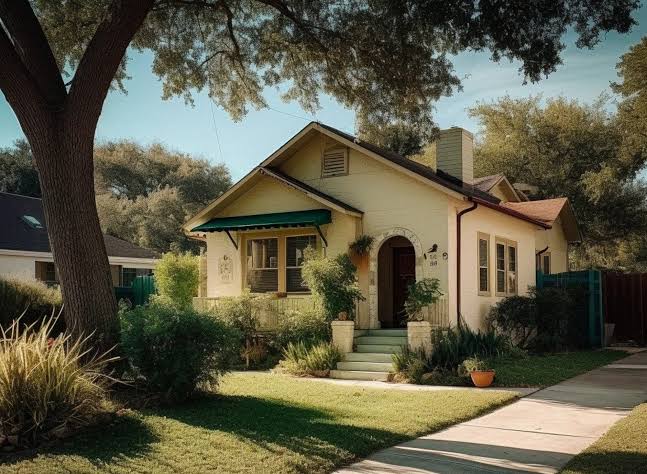Business
10 Ways to Get a Good Deal on Your Home in Nigeria by Dennis Isong

10 Ways to Get a Good Deal on Your Home in Nigeria by Dennis Isong
Buying a home is one of the biggest decisions you’ll make in your life. In Nigeria, where the real estate market can be tricky, it’s important to be smart and careful when looking for a good deal. This article you are about to read will give you 10 useful tips to help you make sure you’re getting the best value for your money when buying a home in Nigeria.
1. Do Your Homework on the Area
Before you even start looking at houses, it’s crucial to learn about the area where you want to live. Different parts of Nigeria have different prices and benefits. Some areas might be cheaper but far from good schools or markets. Others might be more expensive but safer or closer to your work.
Take time to visit different neighborhoods. Walk around, talk to people who live there, and get a feel for the place.
Ask yourself:
– Is it safe?
– Are there good roads?
– How’s the electricity supply?
– Is it close to important places like hospitals, schools, or your workplace?
– What’s the community like?
2. Set a Realistic Budget
It’s easy to get carried away when you’re looking at beautiful homes, but it’s important to stick to what you can afford. Before you start house hunting, sit down and figure out your budget.
Think about:
– How much money you have saved
– How much you can borrow from a bank
– Your monthly income and expenses
Remember, buying a home isn’t just about the price tag. You’ll need to think about other costs too, like:
– Lawyer fees
– Taxes
– Repairs or renovations
– Moving costs
Make sure you have some extra money set aside for these things. It’s always better to buy a slightly cheaper house and have money left over than to spend everything on the house and struggle later.
3. Use a Trusted Real Estate Agent
A good real estate agent can be your best friend when you’re looking for a home. They know the market, they have connections, and they can help you find deals that you might miss on your own.
But be careful – not all agents are trustworthy. Here’s how to find a good one:
– Ask friends or family for recommendations
– Look for agents with good reviews online
– Check if they’re registered with the Nigerian Institution of Estate Surveyors and Valuers (NIESV)
– Meet with a few different agents and see who you feel comfortable with
4. Don’t Rush – Take Your Time
Buying a home is a big decision, so don’t feel pressured to make it quickly. Some sellers or agents might try to rush you, saying things like “This deal won’t last long!” or “Someone else is interested in buying this house!”
Don’t fall for these tricks. It’s better to take your time and make sure you’re making the right choice. Visit the house more than once, at different times of the day. This will help you notice things you might miss on a quick visit, like noisy neighbors or bad traffic at certain hours.
If you feel rushed or pressured, that’s often a sign that something isn’t right. A good deal today will still be a good deal tomorrow.
5. Get a Professional Inspection
Never buy a house without having it checked by a professional inspector. This might cost a bit of money, but it can save you from much bigger costs in the future.
An inspector will look at things like:
– The foundation of the house
– The roof
– Electrical systems
– Plumbing
– Signs of pests or termites
They might find problems that you can’t see with your own eyes. If they do find issues, you can use this information to negotiate a lower price or ask the seller to fix the problems before you buy.
6. Check All the Legal Documents
In Nigeria, it’s very important to make sure all the legal papers for the house are in order. This can be confusing, but it’s crucial to avoid problems later. Here are some key documents to check:
– Certificate of Occupancy (C of O): This shows that the government has given permission for the land to be used for housing.
– Survey Plan: This shows the exact boundaries of the property.
– Deed of Assignment: This shows that the current owner has the right to sell the property.
– Tax clearance: This shows that all taxes on the property have been paid.
It’s a good idea to hire a lawyer who specializes in real estate to help you check these documents. They can spot any problems and make sure everything is legal and correct.
7. Negotiate the Price
Don’t be afraid to negotiate! The first price the seller asks for is often not their final price.
Here are some tips for negotiating:
– Start lower than you’re willing to pay. This gives you room to go up.
– Point out any problems with the house that might lower its value.
– Be ready to walk away if the price is too high. Sometimes, showing that you’re willing to look at other houses can make the seller more flexible.
– If the seller won’t lower the price, see if they’ll include other things, like furniture or appliances.
Remember, negotiating isn’t about winning or losing. It’s about finding a price that’s fair for both you and the seller.
8. Consider the Future
When you’re buying a home, don’t just think about your needs right now. Think about the future too.
Ask yourself:
– Will this house still be good for me in 5 or 10 years?
– If I have children, will there be enough space?
– Is the area likely to improve or get worse over time?
– Could I easily sell this house if I need to move?
Buying a home that will still be good for you in the future can save you money and stress in the long run.
9. Compare Prices of Similar Homes
To know if you’re getting a good deal, you need to know what other similar houses cost. This is called “comparing comparables” or “comps” for short.
Look at houses that are:
– In the same area
– About the same size
– In similar condition
You can find this information online, through your real estate agent, or by visiting open houses in the area. If the house you want is much more expensive than similar houses, that’s a sign that it might be overpriced.
10. Trust Your Instincts
Finally, trust your gut feeling. If something feels wrong about a deal, even if you can’t explain why, it’s okay to step back and think more.
Maybe the seller seems too eager to sell quickly. Maybe the price seems too good to be true. Or maybe you just don’t feel comfortable in the house.
These feelings are important. Buying a home is not just a financial decision – it’s also an emotional one. You should feel good about your choice.
Dennis Isong is a TOP REALTOR IN LAGOS.He Helps Nigerians in Diaspora to Own Property In Lagos Nigeria STRESS-FREE. For Questions WhatsApp/Call 2348164741041
Business
Nigeria’s Inflation Drops to 15.10% as NBS Reports Deflationary Trend

Nigeria’s headline inflation rate declined to 15.10 per cent in January 2026, marking a significant drop from 27.61 per cent recorded in January 2025, according to the latest Consumer Price Index (CPI) report released by the National Bureau of Statistics.
The report also showed that month-on-month inflation recorded a deflationary trend of –2.88 per cent, representing a 3.42 percentage-point decrease compared to December 2025. Analysts say the development signals easing price pressures across key sectors of the economy.
Food inflation stood at 8.89 per cent year-on-year, down from 29.63 per cent in January 2025. On a month-on-month basis, food prices declined by 6.02 per cent, reflecting lower costs in several staple commodities.
The data suggests a sustained downward trajectory in inflation over the past 12 months, pointing to improving macroeconomic stability.
The administration of President Bola Ahmed Tinubu has consistently attributed recent economic adjustments to ongoing fiscal and monetary reforms aimed at stabilising prices, boosting agricultural output, and strengthening domestic supply chains.
Economic analysts note that while the latest figures indicate progress, sustaining the downward trend will depend on continued policy discipline, exchange rate stability, and improvements in food production and distribution.
The January report provides one of the clearest indications yet that inflationary pressures, which surged in early 2025, may be moderating.
Bank
Alpha Morgan to Host 19th Economic Review Webinar

Alpha Morgan to Host 19th Economic Review Webinar
In an economy shaped by constant shifts, the edge often belongs to those with the right information.
On Wednesday, February 25, 2026, Alpha Morgan Bank will host the 19th edition of its Economic Review Webinar, a high-level thought leadership session designed to equip businesses, investors, and individuals with timely financial and economic insight.
The session, which will hold live on Zoom at 10:00am WAT and will feature economist Bismarck Rewane, who will examine the key signals influencing Nigeria’s economic direction in 2026, including policy trends, market movements, and global developments shaping the local landscape.
With a consistent track record of delivering clarity in uncertain times, the Alpha Morgan Economic Review continues to provide practical context for decision-making in a dynamic environment.
Registration for the 19th Alpha Morgan Economic Review is free and can be completed via https://bit.ly/registeramerseries19
It is a bi-monthly platform that is open to the public and is held virtually.
Visit www.alphamorganbank to know more.
Business
GTBank Launches Quick Airtime Loan at 2.95%

GTBank Launches Quick Airtime Loan at 2.95%
Guaranty Trust Bank Ltd (GTBank), the flagship banking franchise of GTCO Plc, Africa’s leading financial services group, today announced the launch of Quick Airtime Loan, an innovative digital solution that gives customers instant access to airtime when they run out of call credit and have limited funds in their bank accounts, ensuring customers can stay connected when it matters most.
In today’s always-on world, running out of airtime is more than a minor inconvenience. It can mean missed opportunities, disrupted plans, and lost connections, often at the very moment when funds are tight, and options are limited. Quick Airtime Loan was created to solve this problem, offering customers instant access to airtime on credit, directly from their bank. With Quick Airtime Loan, eligible GTBank customers can access from ₦100 and up to ₦10,000 by dialing *737*90#. Available across all major mobile networks in Nigeria, the service will soon expand to include data loans, further strengthening its proposition as a reliable on-demand platform.
For years, the airtime credit market has been dominated by Telcos, where charges for this service are at 15%. GTBank is now changing the narrative by offering a customer-centric, bank-led digital alternative priced at 2.95%. Built on transparency, convenience and affordability, Quick Airtime Loan has the potential to broaden access to airtime, deliver meaningful cost savings for millions of Nigerians, and redefine how financial services show up in everyday life, not just in banking moments.
Commenting on the product launch, Miriam Olusanya, Managing Director of Guaranty Trust Bank Ltd, said: “Quick Airtime Loan reflects GTBank’s continued focus on delivering digital solutions that are relevant, accessible, and built around real customer needs. The solution underscores the power of a connected financial ecosystem, combining GTBank’s digital reach and lending expertise with the capabilities of HabariPay to deliver a smooth, end-to-end experience. By leveraging unique strengths across the Group, we are able to accelerate innovation, strengthen execution, and deliver a more integrated customer experience across all our service channels.”
Importantly, Quick Airtime Loan highlights GTCO’s evolution as a fully diversified financial services group. Leveraging HabariPay’s Squad, the solution reinforces the Group’s ecosystem proposition by bringing together banking, payment technology, and digital channels to deliver intuitive, one-stop experiences for customers.
With this new product launch, Guaranty Trust Bank is extending its legacy of pioneering digital-first solutions that have redefined customer access to financial services across the industry, building on the proven strength of its widely adopted QuickCredit offering and the convenience of the Bank’s iconic *737# USSD Banking platform.
About Guaranty Trust Bank
Guaranty Trust Bank (GTBank) is the flagship banking franchise of GTCO Plc, a leading financial services group with a strong presence across Africa and the United Kingdom. The Bank is widely recognized for its leadership in digital banking, customer experience, and innovative financial solutions that deliver value to individuals, businesses, and communities.
About HabariPay
HabariPay is the payments fintech subsidiary of GTCO Plc, focused on enabling fast, secure, and accessible digital payments for individuals and businesses. By integrating payments and digital technology, HabariPay supports innovative services that make everyday financial interactions simpler and more seamless.
Enquiries:
GTCO
Group Corporate Communication
[email protected]
+234-1-2715227
www.gtcoplc.com
-

 celebrity radar - gossips6 months ago
celebrity radar - gossips6 months agoWhy Babangida’s Hilltop Home Became Nigeria’s Political “Mecca”
-

 society6 months ago
society6 months agoPower is a Loan, Not a Possession: The Sacred Duty of Planting People
-

 society5 months ago
society5 months agoReligion: Africa’s Oldest Weapon of Enslavement and the Forgotten Truth
-

 news6 months ago
news6 months agoTHE APPOINTMENT OF WASIU AYINDE BY THE FEDERAL GOVERNMENT AS AN AMBASSADOR SOUNDS EMBARRASSING









